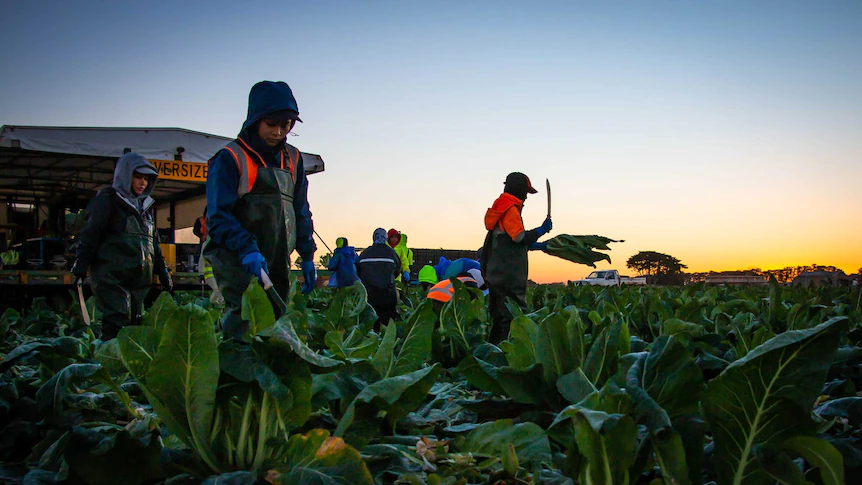



Article by: Hari Yellina
The Australian government announced a new temporary visa for agricultural workers to address labour shortages in the industry. However, it’s a dangerous strategy that could result in more low-skilled farm labourers being exploited and fewer permanent skilled workers. The agriculture sector is heavily reliant on short-term visa holders for labour, with the two primary sources being “backpackers” who stay for three months as a condition of continuing their stay and full-time labourers from Pacific Island nations and Timor-Leste sponsored by companies.
Businesses in the farming, forestry, fishery, and meat-processing sectors would be able to hire full-time workers from other countries under the new Australian Agriculture Visa, with Indonesia anticipated to be the first, with other Southeast Asian countries to follow. Farmers have been fighting for this shift for decades. The new Australia-United Kingdom Free Trade Agreement, which would free British backpackers from the Working Holiday Visa’s obligation to complete 88 days of farm work to extend their stay, is the immediate cause. The agricultural labour force is likely to be reduced by around 10,000 workers each year as a result of this.
The new visa’s details are still being worked out. Visas will be sponsored, as they are for Pacific Island and Timorese employees, therefore the number of visas issued will be determined by employer demand. The payment of award wages will be governed by standard labour laws. However, implementing the entitlements of migrant farm workers is notoriously difficult. Jobs are low-wage and typically in remote places, irrespective of what visa people have. There’s also the issue of visas that bond workers to their sponsors, making it more difficult to flee harassment. Workers who arrive on the new visa may also be eligible for a road to permanent residency, according to the federal government.
However, because the total number of permanent visas available each year is limited to 160,000, providing permanent residency to agricultural visa holders will almost certainly result in the displacement of workers with higher skills. Migrant workers who can get higher-paying positions may be replaced by individuals who can only get low-paying jobs in Australia. Migrants who make less money pay less in taxes. The number of permanent visas given each year may be increased by the government. However, given the politics of population constraints on large cities, the Morrison government is unlikely to increase the quota for permanent migrants. The reasons for removing 30,000 people from the permanent migration programme just three years ago – the most evident being home affordability – haven’t changed.
Lower-skilled agricultural workers should be far down our priority list if the permanent migration programme is enlarged. Australia’s temporary migration history illustrates that once a new visa is introduced, the number of migrant workers can swiftly increase. A new agricultural visa has the potential to repeat history. Instead of rushing ahead, the Morrison government should hit pause and rethink its approach to helping farmers find workers. As it stands this dedicated visa for agricultural workers risks opening a Pandora’s box that will prove impossible to close.